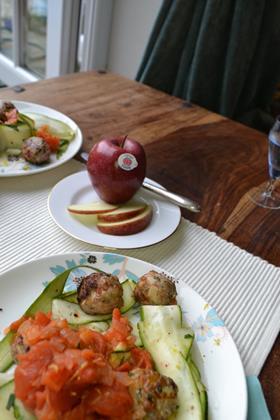
While retailers continue to fight for their share of the market and price pressure remains intense on core lines, it’s no longer enough for a standout brand or club variety to have a single marketing strategy.
Gone are the days of simply hiring a savvy social media manager and using single-platform advertising – today’s top apple brands now offer anything from added-value promotions, freebies, charity work and tiering options.
To keep up with the modern consumer, club variety Cameo is in the process of updating its recipe collection to reflect changing dietary needs, as well as targeting value-focused shoppers with new competitions to win smoothie makers and fancy glassware linked to smoothie and cocktail recipes.
“It’s all designed to demonstrate how picking up a Cameo as a snack or creating something delicious in the kitchen with the apples is a quick and tasty part of a healthy family lifestyle, and the odd party,” explains Sarah Calcutt of Cameo Club UK. “Cameo will be strong at the National Fruit show as always with a reception for our growers and anyone interested in learning more about the variety. We will also have an excellent showing on the display stand with some fabulous quality entries into the competition.”
Responding to different retail strategies on price is a key consideration for brands, and while the move away from promotions to everyday low pricing has been well reported, it doesn’t tell the full story. Lynn Shaw, marketing manager of Pink Lady master licensor Coregeo, says: “With retailers like Sainsbury’s offering everyday low prices, to Asda’s added-value promotions, retailers are moving away from straightforward discounts to discourage customers from shopping around.
“The reception of brands differs per retailer dependent on their customer needs, with large and premium retailers stocking a larger selection of brands to convenience or discounters who tend to offer a smaller range of apple brands.”
Pink Lady is stocked across the full range of retailers, says Shaw, including the discounters and online retailers Amazon Fresh, where it has seen particular growth in the last year. “We started selling Pink Lady through Amazon Fresh last April and have seen significant growth in the limited regions they deliver to. We hope to keep expanding the volumes as Amazon expands the service,” she says.
The brand has also been ramping up marketing for its kids range PinKids, smaller-sized apples with the same Pink Lady quality, including a new tie-up with animated film Despicable Me 3. The new special branded packaging will feature characters from the film and aims to encourage children to eat more fruit, adds Shaw.
For James Simpson, managing director of Kanzi licensee Adrian Scripps, managing the retail price point and retailer expectation is the key challenge. “We have to help where this is needed, as well as respect that we need both sales and support from consumers and good returns to growers,” he says.
“Kanzi has invested heavily in promotional support both above and below the line to help retailers meet their required margin. Driving consumer interest and repeat purchase is key.”
Elsewhere, Worldwide Fruit-marketed Jazz apples have seen impressive sales growth this year, up 23 per cent year on year in value, according to commercial manager Gary Harrison. He says marketing is centred around online and social media, as well as consumer food shows. The Jazz Apple Foundation remains a key part of the brand’s messaging outside of produce, as it seeks to capitalise on the link between health, sport and fresh produce.
Conditions remain tough in grocery trading, and brands have their work cut out to maintain consumer and retail value. But as Harrison puts it: “In an ever-competitive market place, it is important to try to stand out on the shelf, and good branding helps makes this possible.”



